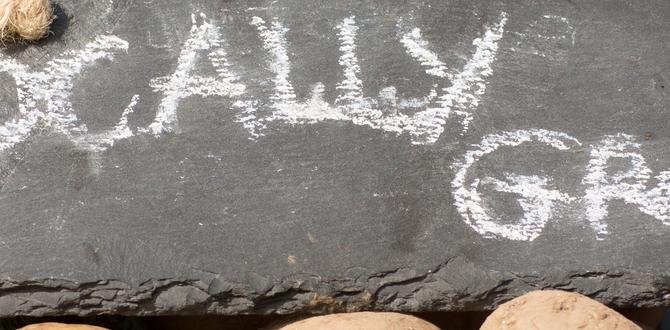Planning a Bali Ubud one-week itinerary is a fantastic way to experience the island’s spiritual heart. This guide provides a structured, day-by-day plan focusing on culture, nature, and relaxation, ensuring a stress-free and unforgettable trip for beginners.
Dreaming of waking up to lush rice paddies and exploring ancient temples? Ubud, Bali, is a magical place. Many travelers find planning a week there a bit overwhelming. You want to see the highlights but don’t know where to start. Don’t worry! This guide breaks down your Ubud adventure into easy-to-follow days. We’ll help you discover its beauty, connect with its culture, and find moments of peace. Get ready for a journey that feels both exciting and comfortably manageable, with practical tips for every step.
Frequently Asked Questions about Bali Ubud
What is the best time of year to visit Ubud?
The dry season, from April to September, offers the best weather with less rain and more sunshine. However, shoulder months like April, May, and September can be less crowded and still offer great conditions.
Is Ubud suitable for first-time visitors to Bali?
Absolutely! Ubud is often considered the cultural heart of Bali and is very welcoming to first-time visitors. It offers a great introduction to Balinese culture, spirituality, and nature.
What is the best way to get around Ubud?
For shorter distances, walking is pleasant. For exploring further, you can hire a scooter (if you have experience and an international driving permit), use ride-hailing apps like Gojek or Grab, or hire a private driver for day tours.
Do I need to book tours in advance?
For popular activities like cooking classes or specific temple visits, booking a day or two in advance is wise, especially during peak season. For most temple entries and natural attractions, you can usually buy tickets on arrival.
What should I pack for Ubud?
Light, breathable clothing, comfortable walking shoes, a hat, sunglasses, insect repellent, sunscreen, and a sarong (many temples require it for entry). If you have specific travel needs, like adult or child diapers for extended travel, pack them or research local availability beforehand to ensure comfort and uninterrupted fun.
How much money should I budget for a week in Ubud?
While costs vary greatly, a mid-range budget for one week in Ubud can range from $500 to $1000 USD per person, excluding flights. This covers accommodation, food, activities, and local transport. Budget travelers can do it for less, while luxury travelers will spend more.
What are the must-try foods in Ubud?
Don’t miss Nasi Goreng (fried rice), Mie Goreng (fried noodles), Sate Lilit (minced seafood satay), Babi Guling (suckling pig), and fresh Gado-Gado. Ubud also has a thriving vegan and healthy food scene.
Bali Ubud One Week Itinerary: Your Essential Beginner’s Guide
Discover the Soul of Bali: A Perfect Week in Ubud
Welcome to Ubud, Bali’s cultural and spiritual core! Often called the “Island of the Gods,” Bali offers a unique blend of vibrant traditions and breathtaking landscapes. Ubud stands out with its serene rice terraces, ancient temples, and a deeply rooted artistic spirit. This guide is crafted for beginners, breaking down a one-week itinerary into manageable, exciting days. We’ll cover everything from must-see sights to practical tips, ensuring your Ubud adventure is smooth, enriching, and filled with comfort. Get ready to immerse yourself in the magic of Ubud!
Why Ubud is a Must-Visit
Ubud isn’t just a destination; it’s an experience. Nestled in the lush central highlands, it offers a stark contrast to Bali’s bustling southern beaches. Here, you’ll find a slower pace of life, a thriving arts scene, and a deep connection to nature and spirituality. It’s a place where you can visit significant cultural sites, indulge in wellness activities, and savor delicious local cuisine, all within a single week.
For families, solo travelers, or those managing personal care needs, planning ahead is key. Ensuring you have comfortable solutions like readily available adult or child diapers can make a huge difference for long travel days or active excursions, allowing you to focus on the experience rather than potential discomfort. Ubud’s welcoming nature makes it an ideal starting point to explore the magic of Bali.
Essential Planning Tips for Your Ubud Week
Before you dive into the day-by-day itinerary, let’s cover some crucial planning aspects to make your trip seamless. These practical tips will help you maximize your time and comfort in Ubud.
Best Time to Visit
The ideal time to visit Ubud is during the dry season, which runs from April to September. During these months, you’ll experience less rainfall and more sunshine, perfect for exploring outdoor attractions. The months of April, May, and September are particularly good as they fall within the dry season but often see fewer crowds and slightly lower prices compared to the peak months of July and August.
Getting There and Around
Getting to Ubud: Most international travelers arrive at Ngurah Rai International Airport (DPS) in Denpasar. From the airport, Ubud is about a 1-1.5 hour drive, depending on traffic. You can arrange a taxi or a pre-booked private transfer, which is often the most convenient option after a long flight.
Getting Around Ubud:
- Walking: The central areas of Ubud are quite walkable and enjoyable on foot.
- Scooter Rental: For the adventurous and experienced rider with an international driving permit, scooters offer great flexibility. However, traffic can be chaotic, so exercise caution.
- Ride-Hailing Apps: Services like Gojek and Grab are widely available and offer affordable car and scooter taxi services. This is a convenient and safe option for many.
- Private Driver: Hiring a private driver for a full or half-day is an excellent way to see sights outside the immediate town center. Negotiate rates beforehand.
Choosing Your Accommodation
Ubud offers a wide range of accommodations to suit every budget and preference:
- Budget Hostels & Guesthouses: Plenty of affordable options for backpackers and solo travelers.
- Mid-Range Hotels & Villas: Comfortable stays with good amenities, often featuring pools and serene garden settings.
- Luxury Resorts: For a splurge, experience world-class service, stunning views, and exceptional wellness facilities.
Consider staying slightly outside the main town center for more tranquility, surrounded by rice paddies, while still being a short ride away from the action.
Essential Packing Items
Pack light, breathable clothing suitable for a warm, humid climate. Don’t forget:
- Lightweight tops and bottoms
- A modest outfit for temple visits (shoulders and knees covered)
- Comfortable walking shoes or sandals
- Swimwear
- Sunscreen, hat, and sunglasses
- Insect repellent
- A reusable water bottle
- A universal travel adapter
- Travel-sized toiletries, and for some, ensuring a discreet supply of adult or child diapers for peace of mind during their travels.
A sarong is often provided by or can be purchased at temples, but having your own is convenient. For more on packing, check out TSA’s guidelines on liquids to ensure your carry-on is packed correctly.
Your Ubud One Week Itinerary: Day by Day
This itinerary balances popular attractions with opportunities to explore at a relaxed pace. Feel free to swap days based on your interests or energy levels!
Day 1: Arrival and Ubud’s Heartbeat
Morning/Afternoon: Arrive at Denpasar Airport (DPS), transfer to your accommodation in Ubud. Settle in, unpack, and take some time to relax by the pool or explore your immediate surroundings.
Late Afternoon: Begin your Ubud exploration with a visit to the iconic Ubud Monkey Forest (Sacred Monkey Forest Sanctuary). Wander through the lush jungle, marvel at the ancient temples within, and observe the resident long-tailed macaques. Remember to secure your belongings and avoid direct eye contact with the monkeys.
Evening: Enjoy dinner at a local warung (small restaurant) or a cafe along Jalan Monkey Forest. Consider attending a traditional Balinese dance performance at the Ubud Palace or a nearby venue. This is a vibrant introduction to Balinese culture.
Day 2: Rice Terraces and Temples
Morning: After breakfast, head north to the stunning Tegalalang Rice Terraces. Arrive early to avoid the midday heat and crowds. Walk down into the terraces, enjoy the picturesque scenery, and perhaps try a Bali swing for an adrenaline rush (optional). Consider visiting a local coffee plantation nearby to sample Luwak coffee and other local brews.
Afternoon: Visit Tirta Empul Temple, a holy water temple where Balinese Hindus go for ritual purification. You can observe the purification ceremony or participate yourself after learning the customs and renting a sarong. It’s a deeply spiritual and unique experience.
Evening: Return to Ubud. Explore the vibrant Ubud Art Market for souvenirs, crafts, and clothing before enjoying dinner. Try some authentic Babi Guling if you’re a meat-eater – it’s a Balinese specialty!
Day 3: Art, Culture, and Wellness
Morning: Immerse yourself in Ubud’s artistic soul. Visit the Neka Art Museum or the Blanco Renaissance Museum to see a diverse collection of Balinese art, from traditional to contemporary. Alternatively, participate in a Balinese painting or silver-making workshop.
Afternoon: Indulge in a traditional Balinese massage or spa treatment. Ubud is renowned for its wellness retreats and affordable spa services. This is the perfect way to relax and rejuvenate.
Evening: Enjoy a healthy, organic meal at one of Ubud’s many renowned vegetarian or vegan cafes. Ubud is a hub for holistic and healthy living.
Day 4: Journey to Jatiluwih and Temples of the West
Full Day Trip: Today, venture further afield. Hire a driver for a day trip to the UNESCO World Heritage site of Jatiluwih Rice Terraces. These are Bali’s largest rice fields, offering a more expansive and less crowded experience than Tegalalang. Enjoy a trek or bike ride through the paddies.
On your way back, visit Tanah Lot Temple, an iconic sea temple perched on a rock formation. It’s particularly beautiful at sunset, though it can be very crowded. Alternatively, visit the ancient rock carvings at Goa Gajah (Elephant Cave), a significant archaeological site.
Evening: Return to Ubud, perhaps opting for a quieter dinner after a long day of sightseeing.
Day 5: Sunrise Trek and Local Life
Early Morning: For the adventurous, consider an early morning trek up Mount Batur (a volcano) for a spectacular sunrise view over Bali. This requires a very early start (around 2 am) and is a guided tour. It’s an unforgettable experience.
Alternatively (if not trekking): Enjoy a leisurely morning. Take a beginner’s yoga class at one of Ubud’s famous studios like The Yoga Barn or Radiantly Alive. Or, explore the lesser-known Campuhan Ridge Walk for beautiful valley views.
Afternoon: Visit a local Balinese compound to gain insight into daily life and traditions. Many locals are happy to share their culture with respectful visitors.
Evening: Take a Balinese cooking class. Learn to prepare traditional dishes and enjoy the fruits of your labor for dinner. It’s a fun and delicious way to engage with the local culture.
Day 6: Waterfalls and Villages
Full Day Trip: Explore the natural beauty surrounding Ubud. Hire a driver for a day of waterfall hopping. Popular choices include Tegenungan Waterfall (closest and most accessible but can be busy), Tibumana Waterfall (known for its picturesque cascade), and Kanto Lampo Waterfall (unique rock formations). Wear sturdy shoes as paths can be slippery.
Consider visiting a traditional Balinese village like Penglipuran Village, known for its well-preserved architecture and clean streets.
Evening: Enjoy your last full evening in Ubud. Perhaps revisit a favorite restaurant or try a fine-dining experience showcasing Balinese flavors.
Day 7: Relaxation and Departure
Morning: Enjoy a final leisurely breakfast. Depending on your flight schedule, you can do some last-minute souvenir shopping, revisit a favorite spot, or simply relax at your accommodation.
Afternoon: Check out from your hotel and transfer to Ngurah Rai International Airport (DPS) for your departure. Allow ample time for the journey, as traffic can be unpredictable.
Ubud at a Glance: A Sample Budget
Here’s a rough estimate for a mid-range budget for one week in Ubud, excluding flights. Prices are approximate and can vary significantly.
| Category | Estimated Cost (USD) | Notes |
|---|---|---|
| Accommodation (7 nights) | $200 – $500 | Guesthouse to comfortable hotel/villa |
| Food & Drinks (7 days) | $150 – $300 | Mix of local warungs and nicer cafes |
| Activities & Entrance Fees | $100 – $200 | Temples, Monkey Forest, museums, basic courses |
| Local Transportation (Drivers/Apps) | $70 – $150 | For day trips and getting around |
| Miscellaneous (Souvenirs, Tips) | $50 – $100 | Optional but recommended |
| Total Estimated Budget | $570 – $1250 | Per person, for a comfortable mid-range trip |
Budget-Friendly Tips:
- Eat at local warungs for authentic and affordable meals.
- Walk or use ride-sharing apps instead of private drivers for short distances.
- Look for guesthouses or homestays for cheaper accommodation.
- Happy hours and local markets are great for saving money on drinks and snacks.
Splurge Considerations:
- Private yoga or meditation sessions.
- High-end spa treatments.
- Fine dining experiences.
- Extended Balinese cooking or craft workshops.
- Private guided tours with a knowledgeable local guide.
Practical Advice for Stress-Free Travel
As a seasoned traveler, Michael C. Herrera from Journey Essentials always emphasizes comfort and practicality. Here are a few more tips to ensure your Ubud trip is as smooth as a Balinese silk scarf:
- Stay Hydrated: The tropical climate can be intense. Drink plenty of bottled water.
- Respect Local Customs: Dress modestly when visiting temples. Learn a few basic Indonesian phrases like “Terima kasih” (thank you).
- Scam Awareness: Be polite but firm with persistent vendors or unsolicited “guides.” Stick to reputable tour operators.
- Money Matters: While many places accept cards, having some Indonesian Rupiah (IDR) in cash is essential for markets, smaller warungs, and entrance fees. ATMs are widely available in Ubud.
- Personal Comfort: For those who may need them, carrying discreet options like adult or child diapers can significantly



